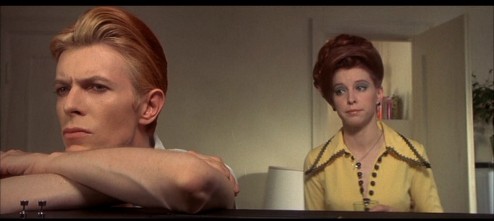Category: Cinema
Reviews of movies Adam has seen or films he has worked on.
A part of this viewing list: Criterion Collection Spine #304: Nicolas Roeg’s The Man Who Fell To Earth.
Musee des Beaux Arts
About suffering they were never wrong,
The Old Masters: how well they understood
Its human position; how it takes place
While someone else is eating or opening a window or just walking dully along;
How, when the aged are reverently, passionately waiting
For the miraculous birth, there always must be
Children who did not specially want it to happen, skating
On a pond at the edge of the wood:
They never forgot
That even the dreadful martyrdom must run its course
Anyhow in a corner, some untidy spot
Where the dogs go on with their doggy life and the torturer’s horse
Scratches its innocent behind on a tree.
In Breughel’s Icarus, for instance: how everything turns away
Quite leisurely from the disaster; the plowman may
Have heard the splash, the forsaken cry,
But for him it was not an important failure; the sun shone
As it had to on the white legs disappearing into the green
Water; and the expensive delicate ship that must have seen
Something amazing, a boy falling out of the sky,
Had somewhere to get to and sailed calmly on.
-Auden
The planets were surely aligned for the production of The Man Who Fell To Earth. David Bowie was deep in the midst of his androgyne starman persona, Nicolas Roeg was growing ever defter in his directorial skills and Walter Tevis provided the novel to bring them all together. I’d say all three are peas in a pod; combinations of mystic and cynic that paradoxically subvert the mechanisms they hate by using them; albeit for different goals. Bowie was a space prophet as Ziggy Stardust, offering the hope transcendence through music and drugs to the pitiful humans on a hellish earth. Roeg was beating the drum against materialist American culture and the soullessness it engendered [and still does, in my honest opinion] and Tevis was exploring the existential psychology of modern life in his writing.
This congruence fits hand-in-glove with my own specific interests: David Bowie, Cinema and Science Fiction and I am essentially inundated with things to talk about in relation to this film. I’ll try to concentrate on the specifics of the film itself.
I’d best get this out of the way right off the bat. This film is full of sex and nudity. Chock full. Rip Torn plays the womanizing professor/scientist Bryce, and must have had an absolutely wonderful time rolling around in his bed with at least half a dozen naked nubile coeds. Yet Roeg is obviously more mature than I am, because his uses of nudity, while titillating, use that titillation to highlight and enhance his critique of American decadence. I find it reminiscent of Fellini’s Satyricon in this respect.

Bowie’s character, the alien Thomas Jerome Newton, arrives on planet with a plan and a goal, but is ultimately unprepared for the culture which ensnares and destroys him, turns him traitorous. This progress can be monitored by comparing him throughout with the deeply flawed characters with which he interacts. Graham Fuller’s essay [linked below] covers this downfall very well, so I’ll skip it.
I didn’t particularly enjoy Walter Tevis’s book, but the movie keeps rather well to its plot, and is enhanced and refined by Roeg’s treatment and Bowie’s interpretation. I’m actually pretty taken aback at how much I enjoyed the film as cinema and not as entertainment [which is how I usually like my sci-fi]. Although Heinlein’s Stranger in a Strange Land is better known for making Earth seem alien to us Earthlings, Tevis manages to make you believe it and Roeg makes you skin-crawlingly feel it.
Roeg’s disdain for American culture borders on preachy, but it fits well with Newton’s turn-coat illusionment; it doesn’t overwhelm the film, barely. I wonder how much of Bowie’s taste influenced the production values of the film as well. The album Low is rumored to be associated with the film, [as the album cover also suggests. It is a pretty good album, sort of proto-electronica/ambient], but the Newton’s fascination with Kabuki and Japanese aesthetics hark back to the day’s of Ziggy Stardust, and Newton’s rude boy appearance in public seems to echo the later stages of the Diamond Dogs tour.
The film is definitely worth a watch. The acting is superb on all fronts, especially Candy Clark’s portrayal of Mary-Lou, and although Roeg still uses the zoom far too heavily for my taste, its a beautiful film in all other aspects.
• DVD Beaver Review NSFW
• Criterion Essay by Graham Fuller
